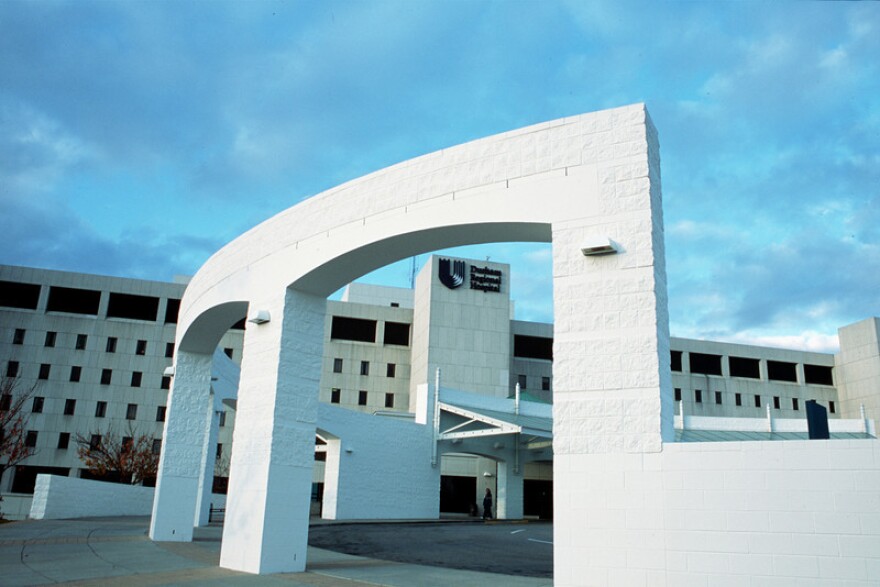North Carolina State Treasurer Dale Folwell is playing a massive game of chicken with every hospital in the state and more than a few doctors and provider practices.
In the middle are the 720,000 school teachers, highway patrol officers, state retirees and all other members of the State Health Plan who could find themselves staring at hospital bills that run into the tens or even hundreds of thousands of dollars beginning Jan. 1.
Folwell wants to increase hospital pricing transparency and reduce health care spending in the State Health Plan by $300 million and launched the Clear Pricing Project to achieve those goals. If he goes through with the plan as proposed, it would drastically change the healthcare reimbursement model. Only one other state - Montana - has undergone a similar model, and its size and state employee composistion makes comparisons nearly impossible.
The treasurer's office oversees the State Health Plan and Folwell wants the plan to save money. To achieve that, he wants hospitals to sign on to a new plan that for many providers will mean less money. Instead of negotiating a reimbursement rate with health care providers, Folwell announced that beginning Jan. 1, 2020, the State Health Plan will peg all its payments to Medicare. Providers in urban areas would get a flat rate of 177 percent of what Medicare pays, and those in rural areas would get 200 percent of Medicare.
Financially speaking, urban health systems in North Carolina far outperform their rural counterparts. UNC Health Care, for instance, generated close to $150 million of operating income in 2018, and almost $200 million of operating income the prior year. That's on top of $200 million of investment income during those two years as well. The Duke University Health System has averaged an operating income of more than $300 million per year for the past four years.
During the same time, rural hospitals have struggled. Morehead Memorial Hospital in Rockingham declared bankruptcy before it was rescued by UNC Health Care and other systems balance their budgets by razor thin margins.
The federal government sets Medicare reimbursement rates, and health systems generally say they break even, or slightly lose money on Medicare patients. Because health systems don't release reimbursement contracts with private payers – including the State Health plan – it's impossible to know how much money they would lose, or if they would generate operating profit from State Health Plan patients under the new contract. That lack of transparency is another one of Folwell's sticking points.
However, not a single hospital has signed on, and it doesn't appear likely that any will by the Folwell-imposed Monday deadline. If none sign on by the first of the year – when current health reimbursement contracts expire – every hospital will go out of network. If that happens, State Health Plan members will likely get bills directly from hospitals for the amounts not covered by the treasurer's office. And those could induce more than a little sticker shock.
"Our focus has always been to attack the problem of transparency and high cost and unaffordable health care and secret health care pricing," said Folwell. "The problem is actually with (hospitals). We're the customer. We've given them a very fair profit margin over what the Medicare reimbursement rates are. The decision of whether to provide health care to the people who teach our kids and protect us from criminals and pave our roads, rests with them."
The N.C. Healthcare Association represents hospitals and has set up a lobbying campaign against the treasurer. The group has called Folwell's plan "shortsighted" and one that will imperil local providers. "This will place an undue burden on teachers, state employees, and retirees by limiting access to the care providers they know and trust."
The State Employees Association of North Carolina represents state workers, and is a vocal supporter of the treasurer's plan. SEANC Executive Director Robert Broome called specifically on the UNC Health System, which itself has thousands of state employees, to support Folwell's Clear Pricing Project.
"We are outraged by UNC Hospitals' gross mismanagement of taxpayer dollars," Broome said, through a released statement. "The UNC hospital system is not only playing politics with health care coverage for more than 720,000 public servants, retirees and their families, but also jeopardizing access to affordable care for their own employees."
Despite the Monday deadline looming, the State Health Plan has reimbursements contracts with providers that run until the end of 2019, so anyone on the plan wouldn't see immediate changes. However, if no resolution presents itself by Jan. 1, hospitals that haven't signed on would go out of network.
The NCHA has attempted an end run around the treasurer's office. At the behest of providers, the North Carolina House passed HB 184, which would put a stop to Folwell's plans and form a committee to study alternative solutions. While the committee works, the State Health Plan would continue to fully reimburse providers. The bill passed the House on April 3, but has sat in a Senate committee since then.
Correction: An earlier version of this story incorrectly identified the state that uses reference-based pricing for its state health plan.








